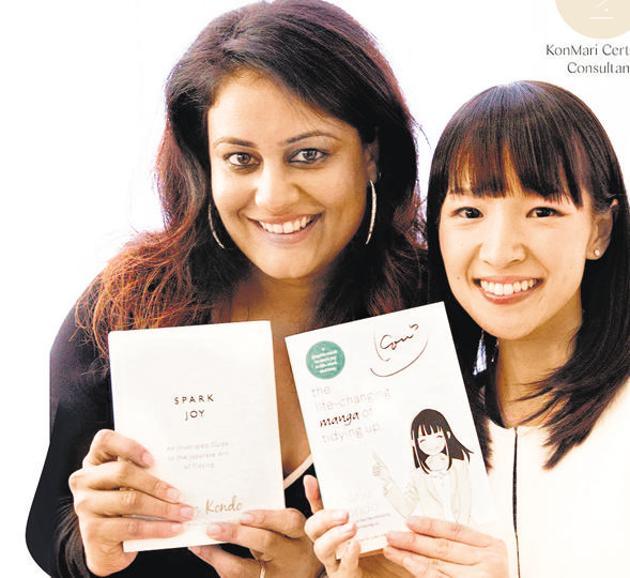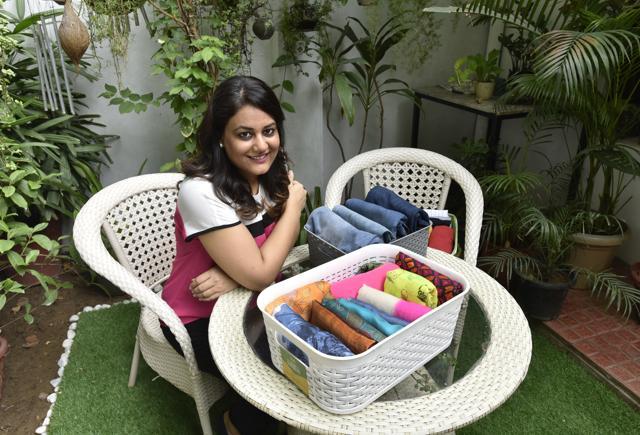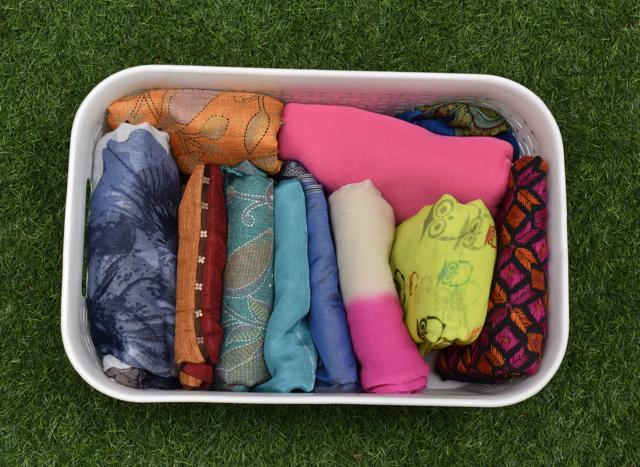Meet India’s first Marie Kondo-Style tidy-up guide
Gayatri Gandhi is India’s first certified KonMari consultant. Here she clears the air around KonMari Method™, its effectiveness and spills some beans on how to achieve the much-talked Japanese minimalism.
Ever since the Netflix show Tidying Up With Marie Kondo went viral early this year, Gayatri Gandhi has seen business boom. But the 36-year-old from New Delhi was an early adopter.

She read Kondo’s book of the same name in 2016 and was so taken by its effect on her own life, that she quit her job with the Discovery Channel and became India’s first certified KonMari consultant. She now makes a living helping people adopt the Marie Kondo formula for organising and tidying up, which is itself based in Japanese minimalism.
In 2017, she set up a company called Joy Factory, which offers decluttering services at the rate of ₹3,000 per hour. Gandhi is a bronze-level KonMari expert, which apparently means she has completed over 150 hours of tidying up in homes across India.
“Only the items that still serve their purpose in life and spark joy within are retained,” she says, “while gratitude is expressed to the other items and they are discarded.” Here’s a look at how she gets people to do that.
WALK US THROUGH WHAT YOU DO AS A DECLUTTERING CONSULTANT
About 90% of the KonMari method is about state of mind and thought processes. The idea is to get the person to become more conscious of what they own, what they need and what they buy, as a way towards greater positivity and mindfulness.
In literal terms, we start by segregating items by category — clothes, books, papers, komono (miscellaneous items) and sentimental items — and then storing or folding each article origami-style. If you can see everything in your drawer without having to lift a finger, then you’re already 90% there.

WHAT DOES IT FEEL LIKE, TO GO INTO SOMEONE’S PERSONAL SPACES AND TRY TO GET THEM TO LITERALLY SEE THINGS DIFFERENTLY?
For me, decluttering a space means interacting with clients on a deeper level and getting to know their personality. The most rewarding outcome is to see clients letting go of a range of emotions which have been pent up for years. Another thing that makes the experience rewarding is the kind of trust you receive from clients who share personal stories and memories.
WHAT ARE SOME OF THE CHALLENGES?
A majority of Indians store items that have been passed on for many generations, and find it difficult to let go even after those items have lost their original purpose. The level of attachment to belongings in India is very high and it is challenging to break through this mindset. That is also because we don’t see clutter as clutter, and seldom acknowledge its negative impact on our lives.
Sometimes clients tell stories as we work; sometimes they have emotional breakdowns. A KonMari consultant has to be patient and calm, offer comfort, because it is not just physical clutter they are parting with. It’s much more.
On a very practical level, one difficulty is that much of our heavy Indian wear cannot be folded in the KonMari way. So we arrange them by category, to ensure a layer of each item is visible.

WHAT’S THE THING YOU’VE FOUND HARDEST TO DISCARD OR GIVE AWAY?
For most people, of the five categories, items from the sentimental/memento category are the most difficult things to let go of. For me, these included cards and letters from my childhood, because of the memories they brought back. But I did eventually discard them because they had served their purpose and I carry them with me as memories, and not tokens.
WHAT’S THE ONE THING YOU WILL KEEP FOREVER?
It’s a piece of paper that my husband and I scribbled on, before we got married. It has more to do with the memories associated with us and the moment in which we wrote it before our wedding, rather than the piece of paper itself.






